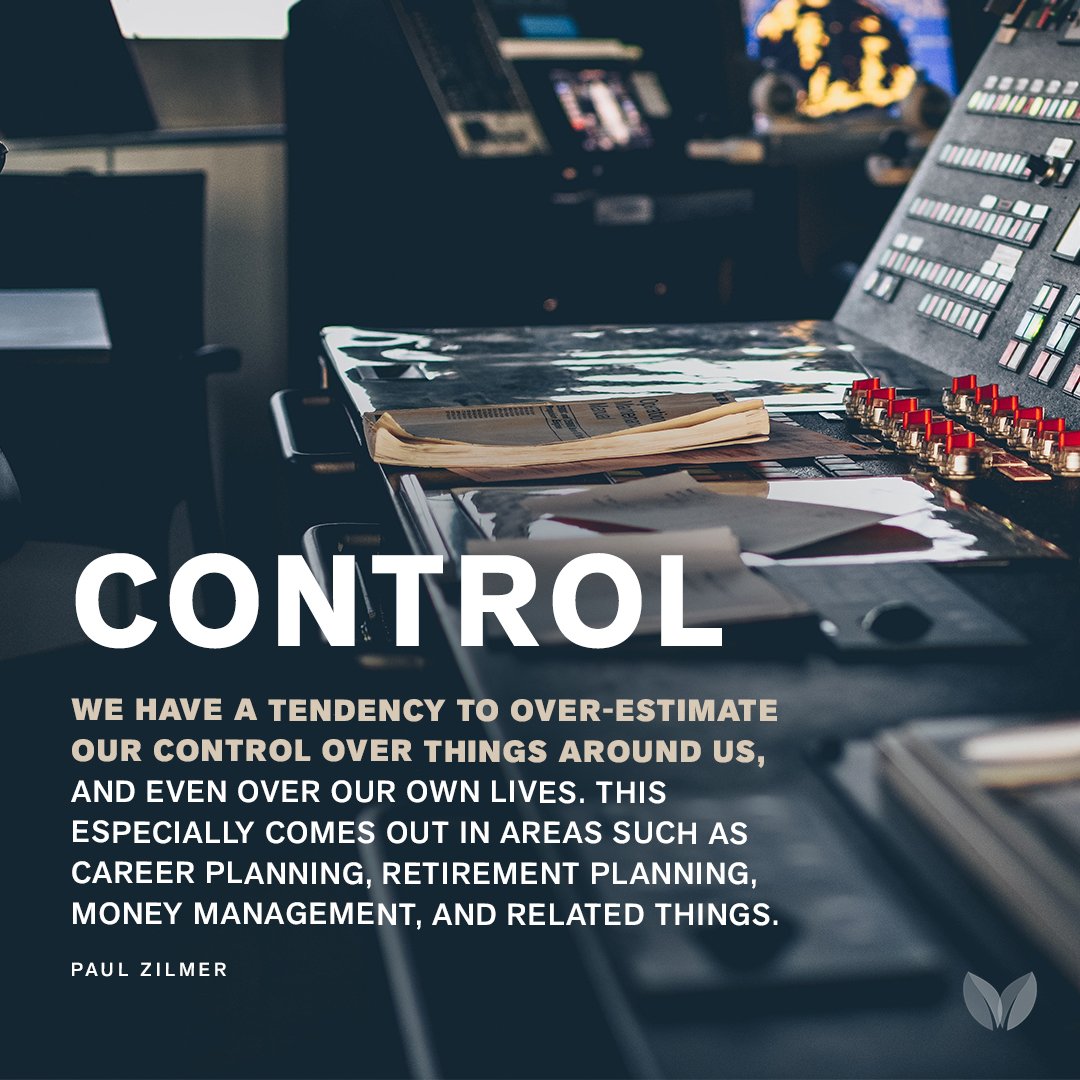Control
You’re familiar with Jesus’s encouragement not to worry about the future: “Therefore do not be anxious about tomorrow, for tomorrow will be anxious for itself. Sufficient for the day is its own trouble.” (Matthew 6:34)
Good advice, and an exhortation to have faith in our heavenly Father’s care for us. We humans do tend to be anxious. So we should boldly forge ahead in total confidence about the future?
Well, we humans also tend to have a problem in the opposite direction. The most succinct caution in that direction is: “Do not boast about tomorrow, for you do not know what a day may bring.” (Proverbs 27:1)
We do like to brag. (Including bragging about how humble we are, but that’s another topic.) The point of this proverb is that we have a tendency to over-estimate our control over things around us, and even over our own lives. This especially comes out in areas such as career planning, retirement planning, money management, and related things.
Jesus addresses this problem, just as he does the reverse problem of our worry. He tells a parable about a rich man and his retirement plan. The man says, “And I will say to my soul, ‘Soul, you have ample goods laid up for many years; relax, eat, drink, be merry.’ But God said to him, ‘Fool! This night your life is required of you, and the things you have prepared, whose will they be?’ So is the one who lays up treasure for himself and is not rich toward God.” (Luke 12:19-21)
James similarly has some strong words about business planning, which can be extended to many other areas of life. James cautions: “Come now, you who say, ‘Today or tomorrow we will go into such and such a town and spend a year there and trade and make a profit’— yet you do not know what tomorrow will bring. What is your life? For you are a mist that appears for a little time and then vanishes. Instead you ought to say, ‘If the Lord wills, we will live and do this or that.’ As it is, you boast in your arrogance. All such boasting is evil. (James 4:13-16)
The man in Jesus’s parable boasts about tomorrow. The businesspeople James criticizes boast about tomorrow. Thankfully, both of them point us in the right direction, as does the proverb. Here’s the solution to this particular problem we humans have. (1) Remember that you don’t know what’s around the corner. (2) Develop richness toward God—which will mean devoting time and attention to that, therefore less time and attention to income, career, retirement, etc. (3) Always, always remember that we must defer to the Lord’s will, and be prepared for Him to say, “No, what you have in mind isn’t the direction I have in mind for you.”
What we have in this proverb, this parable, this caution, is instruction to meekness. Not to presume, especially not to presume we’re the ones in control. What do we know about meekness? Surely as soon as you saw the word you thought of Jesus in the Beatitudes: “Blessed are the meek, for they shall inherit the earth.” (Matthew 5:5) Inherit the earth. Need I point out that’s a lot more than what we were thinking in our business plan, our retirement plan?
This is not instruction to do no planning. It is instruction to accept that we’re not the ones in control, that central to our planning is being “rich toward God”, and that all our plans are undertaken in prayer and in willingness to defer to the Lord’s will.
Oh yes, and that we aren’t anxious about it.
Love, Paul


